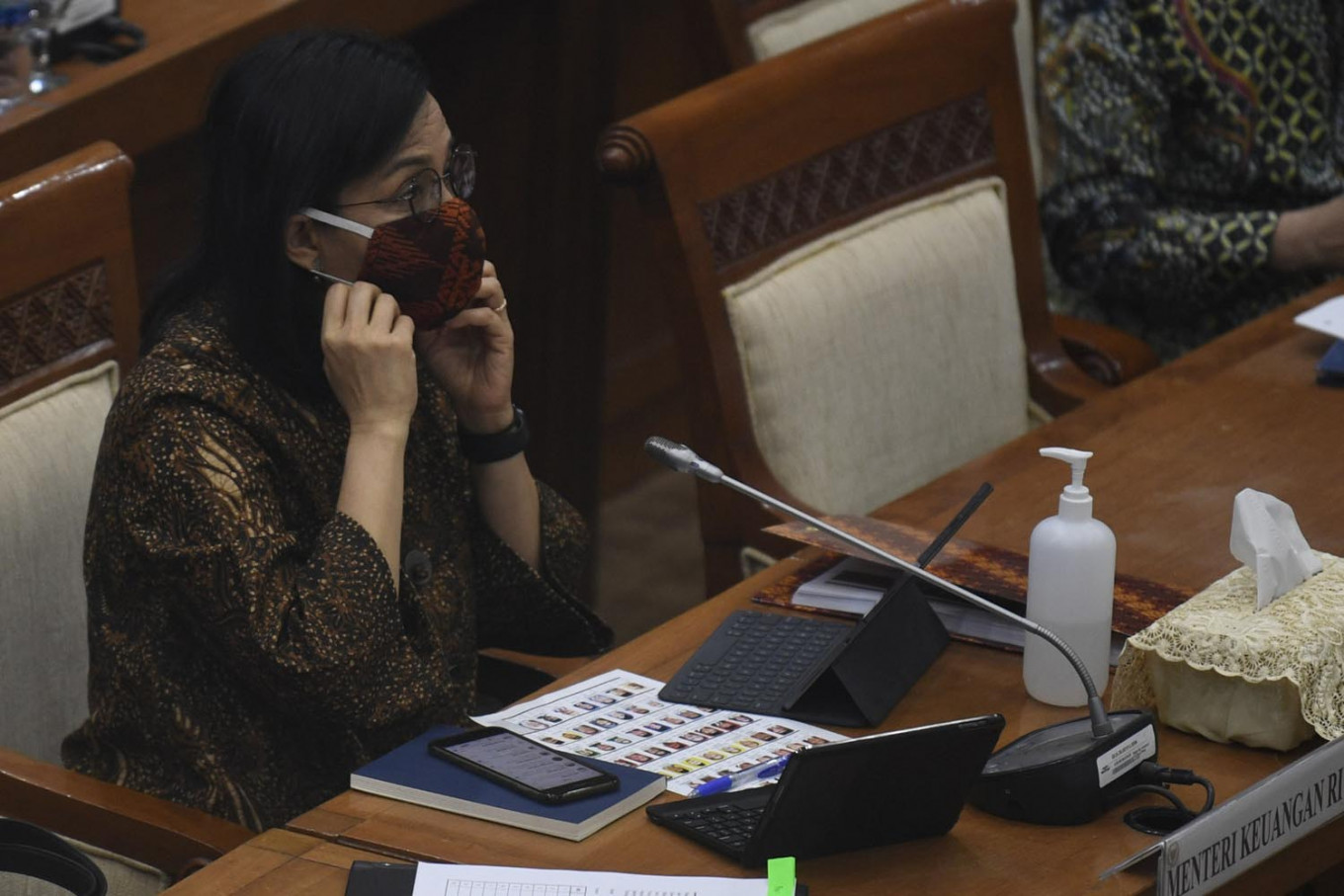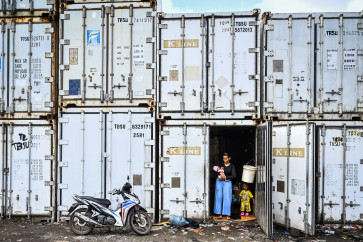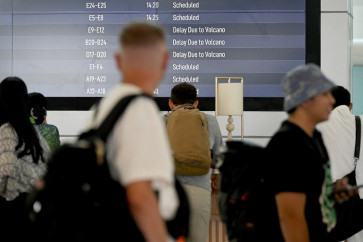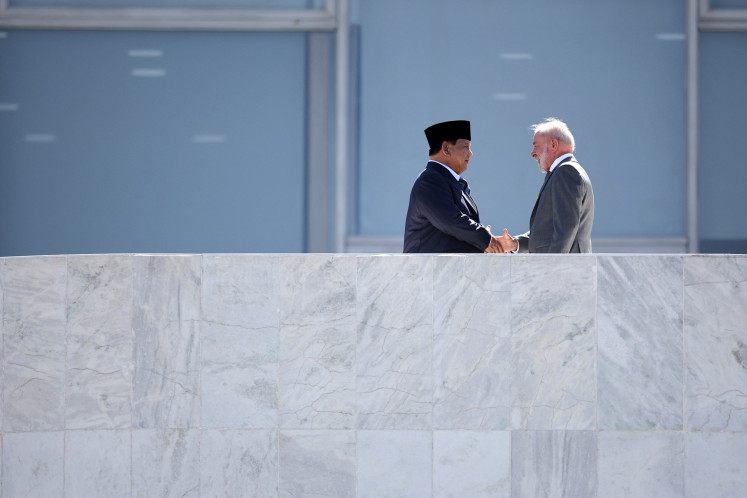Popular Reads
Top Results
Can't find what you're looking for?
View all search resultsPopular Reads
Top Results
Can't find what you're looking for?
View all search resultsEconomic recovery depends on stimulus, omnibus bills: Sri Mulyani
While the government’s virus handling measures would remain a key determinant of economic activity, the minister said, the economy could recover from the pandemic if the stimulus succeeded in stimulating demand and encouraging production.
Change text size
Gift Premium Articles
to Anyone
F
inance Minister Sri Mulyani has said that the country’s economic recovery from the COVID-19 pandemic will depend on the fiscal stimulus package and on economic reforms brought about by the omnibus bills.
While the government’s virus handling measures would remain a key determinant of economic activity, the minister said, the economy could recover from the pandemic if the stimulus succeeded in stimulating demand and encouraging production.
“We want to make sure that the economy recovers by combining fiscal support with reforms to the investment climate,” Sri Mulyani said at an online seminar hosted by the Asian Development Bank (ADB). “The omnibus bill on job creation will overhaul Indonesia’s investment policy to attract investment and build confidence.”
Indonesia’s economy shrank by 5.32 percent in the second quarter and is widely expected to enter a recession in the third quarter, the first since the 1998 Asian financial crisis, as officials spur government spending to deal with the pandemic’s economic fallout.
The government has spent about 36 percent of the Rp 695.2 trillion (US$47.19 billion) stimulus package to boost economic growth, but analysts say the stimulus has been ineffective because disbursement has remained slow, even six months into the outbreak.
The government hopes the omnibus bill on job creation, which is expected to be passed into law later this year by the House of Representatives, will be able to cut red tape, improve the country’s competitiveness and attract foreign investment to support economic growth and create jobs, despite significant controversies surrounding the bill.
Indonesia is formulating an additional omnibus bill to develop and strengthen the country’s financial industry, said the Finance Ministry's Fiscal Policy Agency head, Febrio Kacaribu, as reported by Reuters. The bill is expected to shape the financial industry “to be more adaptive and responsive to vast developments in technology and business practices”, he added.
ADB president Masatsugu Asakawa said the bank was ready to assist member countries, including Indonesia, if the outbreak continued, adding that the bank had prepared $20 billion for countries to fight the pandemic.
“We estimate that the economic losses from the pandemic could be as high as 8.25 percent of regional GDP in developing Asia,” he said, which would mark the first regional contraction in 60 years. “We stress that if the third wave of the pandemic hits members, the ADB stands ready to provide further assistance.”
The ADB expects the Indonesian economy to shrink by 1 percent in 2020, a revision down from the ADB’s previous projection of 2.5 percent growth and one largely in line with the government’s prediction.
In the forum, attended by several Asian finance ministers and central bank governors, Sri Mulyani urged stronger global cooperation to develop a COVID-19 vaccine and rebuild the global economy, saying the future of globalization was “not encouraging”.
“Although we recognize that this crisis is borderless, the response at the global level is lagging behind […] We all need each other so that there will be a global solution,” she said.
Japan’s central bank governor Haruhiko Kuroda said during the discussion that globalization would be sustained and supply chains would be diversified as firms adjusted to the pandemic’s disruption, adding that resorting to protectionism was not the answer and that regional financial cooperation would provide a safety net to weather future economic shocks.










